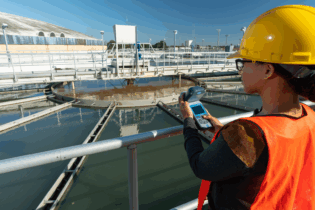Only 20 per cent of global wastewater is currently being treated, leaving low-income countries hardest hit by contaminated water supplies and disease.
This is according to a United Nations (UN) report which encourages governments to see treated wastewater as a valuable resource, and a priority for the post-2015 development agenda.
Wastewater Management, A UN-Water Analytical Brief describes the damage being done to ecosystems and biodiversity as ‘dire’ and warns of the threat wastewater will increasingly pose to human health, economic activity, and water security if left unaddressed.
The report is produced by the World Health Organisation (WHO), the United Nations Environment Programme (UNEP) and UN-Habitat, on behalf of UN-Water.
The report argues that wastewater management has been neglected in the rush to commercialise drinking water production.
This situation is situation exacerbated by a fragmented water management system in many countries, and the use of different technologies that are often designed separately and retrofitted to existing systems.
Wastewater, Africa and the Post-2015 Development Agenda
The Chair of UN-Water, Michel Jarraud said, “Wastewater has featured heavily in the discussions on the Post-2015 Development Agenda. Countries have recognised that economic and sustainable development must incorporate water resources, wastewater and water quality. This publication contributes to the ongoing discussions and will hopefully serve to inform policymakers.”
UN Under-Secretary-General and UNEP Executive Director Achim Steiner said, “Around 70 per cent of industrial discharge in developing countries goes untreated. And eutrophication – from wastewater and agricultural run-off – has, according to recent estimates, reduced biodiversity in rivers, lakes and wetlands by about one-third globally.”
Africa is heavily impacted by the problem of untreated wastewater. Of the thousands of people that die each day of preventable water and sanitation diseases, a significant number are from Africa.
According to the 2014 Africa Water and Sanitation Report, more than 547 million Africans lack access to basic sanitation, a situation that, due to illness, premature deaths and school absenteeism is costing the continent billions annually in lost Gross Domestic Product (GDP) according to the Economics of Sanitation Initiative.






